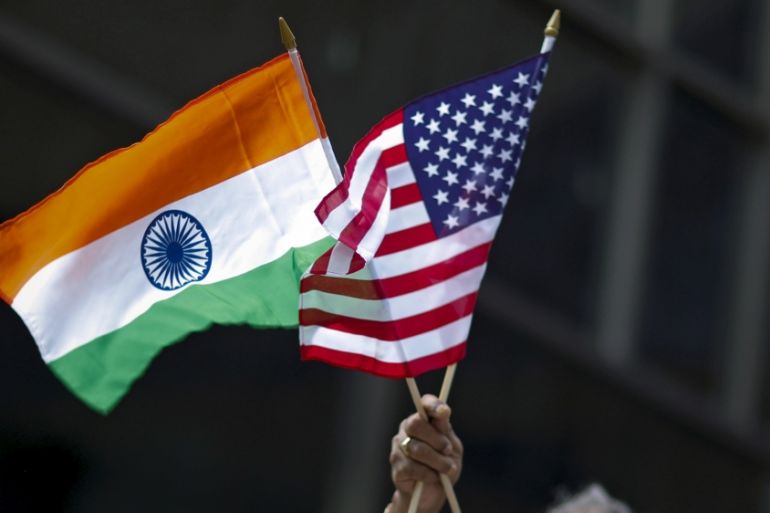by MUKTA JOSHI

US-based Hindu American Foundation has laundered Modi gov’t’s track record on minorities, championed its interests.
On a Wednesday morning in September 2022, a lobbyist reached out to a congressional staffer in Washington, DC. He wanted to set up a meeting on behalf of his client to discuss some human rights concerns in Pakistan and a newly introduced resolution in the United States House of Representatives regarding religious minorities in India.
During the meeting a few weeks later, the client made an appeal: Could the congressional office where the staffer worked back a ban on sustainment packages for F-16 fighter jets sold to Pakistan due to that country’s alleged persecution of its Hindu minority?
This client was not a foreign government or a defence policy think tank. It was a domestic nonprofit called the Hindu American Foundation.
The staffer was taken aback. Despite being familiar with the group and its advocacy on behalf of Hindus in the US, the staffer did not expect it to be so deeply involved in geopolitics.
The Indian government at that time had been publicly pushing back against a $450m F-16 package for Pakistan. India’s defence minister had expressed concerns about it to his US counterpart, and the external affairs minister had openly disparaged the US government for the package.
“In that moment”, the staffer said, “it became clear to me that the Hindu American Foundation was acting on behalf of the Indian government.”
The foundation, also known as HAF, emerged two decades ago as a voice for the Hindu community in the United States. It wasn’t formed to champion the Indian government.
But since Narendra Modi became prime minister in 2014, HAF has ramped up its political activities in favour of the Indian government, which is led by Modi’s Hindu nationalist Bharatiya Janata Party (BJP).
It has emerged, despite its claims of “nonpartisanship”, as an effective advocate of the BJP, attempting to influence the US government through meetings with members of Congress to push for the passage of multiple pieces of legislation on critical aspects of US foreign policy related to India.
Its founders, board members and a parallel political action committee – the Hindu American PAC – have made significant contributions to the election campaigns of legislators who have in turn supported HAF’s lobbying efforts on these issues.
Throughout this time, HAF has maintained a cosy relationship with the Modi government. It has acted in the US to counter the Modi government’s critics, collaborated with the Indian embassy on events and programmes, and corresponded with the embassy on sensitive matters.
Yet in public, HAF distances itself from the Indian government and the BJP. It vehemently refutes allegations that it acts on their behalf, reiterating that its members are merely Hindus engaged in the US political process and calling any allegations of government collusion “dual loyalty slurs”.
HAF appears to be treading a fine line. Its activities in favour of the Indian government, coupled with its continued collaboration with the Indian embassy, raise questions as to whether it should register as a foreign agent under the Foreign Agents Registration Act (FARA) of 1938.
Registration as a foreign agent is required any time an entity represents the interests of a foreign principal before any agency or official of the US on the principal’s behalf.
The definition of a foreign agent in US law includes “any person who acts … at the order, request, or under the direction or control, of a foreign principal … and who directly or through any other person engages within the United States in political activities for, or in the interests of such foreign principal.”
Al Jazeera for more
